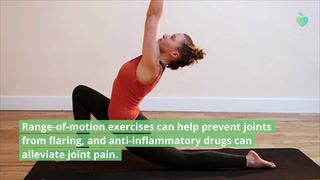Is It Okay to Stop Taking Ulcerative Colitis Medication?

A number of effective ulcerative colitis (UC) medication options are available, but they can’t help you if you don’t take them. This is known as medication nonadherence, and it’s common among people with UC.
“Your disease is likely to progress if you don’t take your medications,” says Twan Phanijphand, DO, a gastroenterologist based in Fort Walton Beach, Florida.
The Risks of Skipping Your Ulcerative Colitis Medication
- Mood fluctuations, including depression, extreme mood changes, or irritability
- Weight gain
- High blood sugar levels and an increased risk of diabetes
- Gut symptoms, including stomach ulcers, stomach pain, and nausea
- Increased appetite
- Joint, bone, and muscle issues
- Eye conditions, including glaucoma and cataracts
- Difficulty sleeping, especially if you use more than a single daily dose
“One reason to avoid frequent flares is so you can avoid steroid exposure,” Dr. Phanijphand says.
Why People Stop Ulcerative Colitis Medication
People stop taking their UC medication for a number of reasons, says Phanijphand.
People also tend to stop taking their medication when symptoms subside and they are feeling better. “Some patients think that once their symptoms are gone, they can stop taking their meds,” Phanijphand says. “They believe they’re cured or that they may have been misdiagnosed.”
5 Complications of Ulcerative Colitis

Next up video playing in 10 seconds
Tips and Tricks for Sticking With Treatment
If you’re having trouble sticking with your medication, try these three tips to help you stay on track.
- Speak Up Be open with your doctor about any and all side effects of medication so you can work together on a solution. Your doctor may lower your dose or switch medicines, Phanijphand says.
- Look for Ways to Save Money Financial assistance can lower your out-of-pocket expenses. Resources like the Crohn’s & Colitis Foundation can steer you toward programs that may reduce your cost of care.
- Set Alerts Turns out some people just forget to pick up or take their medicine. However, you can also take steps to make that less likely. For example, setting a reminder on your phone to take a dose significantly increases the likelihood that you’ll remember and adhere to your medication in the long term.
The Takeaway
- Many people have trouble sticking to their ulcerative colitis (UC) medication or stop taking it for various reasons, including the cost, feeling better, side effects, or forgetting to take it, among other reasons.
- Stopping medications during remission raises the risks of relapses and even diseases like colon cancer.
- Express any concerns you have about continuing to take these medications to your doctor. They may be able to recommend financial assistance programs, switch medications if the side effects are too severe, or support adherence in other ways.
Resources We Trust
- Mayo Clinic: Ulcerative Colitis: Diagnosis and Treatment
- Cleveland Clinic: Ulcerative Colitis
- Crohn’s & Colitis Foundation: Patient Financial Assistance Programs
- Crohn’s & Colitis UK: Living With Crohn’s or Colitis
- American Medical Association: What Doctors Wish Patients Knew About Inflammatory Bowel Disease
Additional reporting by Zachary Smith.
- Tripathi K et al. Patient Preference and Adherence to Aminosalicylates for the Treatment of Ulcerative Colitis. Clinical and Experimental Gastroenterology. August 29, 2021.
- Zhang L et al. Colorectal Cancer Risk in Ulcerative Colitis: An Updated Population-Based Systematic Review and Meta-Analysis. eClinicalMedicine. May 22, 2025.
- The Risk of Colorectal Cancer in Crohn’s Disease and Ulcerative Colitis Patients. Crohn’s & Colitis Foundation.
- Meštrović A et al. Discontinuation of Therapy in Inflammatory Bowel Disease: Current Views. World Journal of Clinical Cases. April 6, 2024.
- Steroids. Crohn’s & Colitis UK. March 2023.
- Burisch J et al. The Cost of Inflammatory Bowel Disease Care: How to Make It Sustainable. Clinical Gastroenterology and Hepatology. February 2025.
- Park KT et al. The Cost of Inflammatory Bowel Disease: An Initiative From the Crohn’s & Colitis Foundation. Inflammatory Bowel Diseases. January 2020.
- van Linschoten RCA et al. Systematic Review: Societal Cost of Illness of Inflammatory Bowel Disease Is Increasing Due to Biologics and Varies Between Continents. Alimentary Pharmacology and Therapeutics. August 2021.
- Treatments. Crohn’s & Colitis UK.
- King K et al. Medication Non-Adherence in Inflammatory Bowel Disease: A Systematic Review Identifying Risk Factors and Opportunities for Intervention. Pharmacy. February 7, 2025.
- Ley D et al. Use of an iPhone Application to Increase Adherence in Patients With Ulcerative Colitis in Remission: A Randomized Controlled Trial. Inflammatory Bowel Diseases. May 2020.

Yuying Luo, MD
Medical Reviewer
Yuying Luo, MD, is an assistant professor of medicine at Mount Sinai West and Morningside in New York City. She aims to deliver evidence-based, patient-centered, and holistic care for her patients.
Her clinical and research focus includes patients with disorders of gut-brain interaction such as irritable bowel syndrome and functional dyspepsia; patients with lower gastrointestinal motility (constipation) disorders and defecatory and anorectal disorders (such as dyssynergic defecation); and women’s gastrointestinal health.
She graduated from Harvard with a bachelor's degree in molecular and cellular biology and received her MD from the NYU Grossman School of Medicine. She completed her residency in internal medicine at the Icahn School of Medicine at Mount Sinai, where she was also chief resident. She completed her gastroenterology fellowship at Mount Sinai Hospital and was also chief fellow.

Beth W. Orenstein
Author
Beth W. Orenstein is a freelance writer for HealthDay, Radiology Today, the Living Well section of The American Legion Magazine, St. Luke’s University Health Network, and others. She is a magna cum laude graduate of Tufts University (1978), where she majored in English and was editor of the student newspaper for three years.
No matter the weather around her eastern Pennsylvania home, Orenstein either bikes 25 to 30 miles or walks at least 6 miles every day. Her one indulgence is blueberry pancakes — but only after biking a long distance.